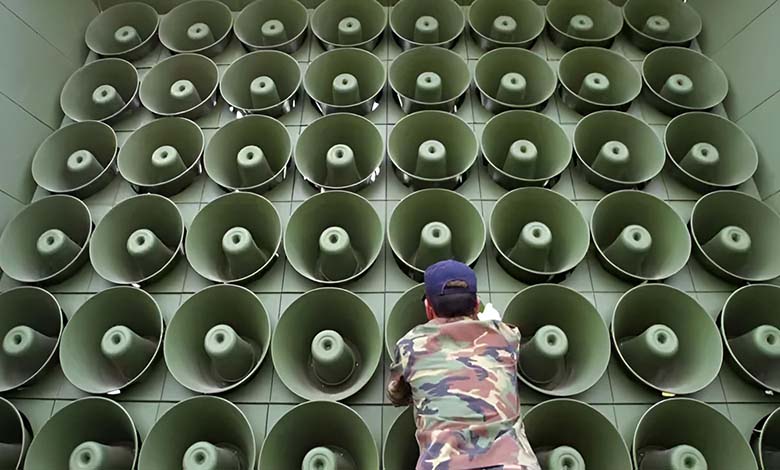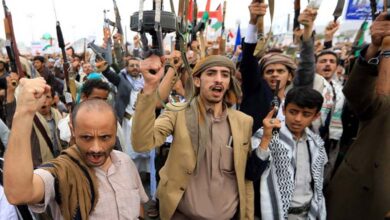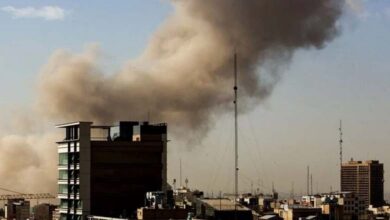Loudspeaker War Between the Koreas… A Silent Truce Ends Decades of Noise

After years of exchanging propaganda broadcasts across the border, calm is gradually returning to the demilitarized zone between the Koreas.
In a new scene of cautious détente between the two Koreas, the South Korean military announced on Saturday that it had observed the North Korean army dismantling some propaganda loudspeakers directed towards the South in parts of the border area, just days after similar steps were taken by Seoul.
-
North Korean Leader Calls for Building a ‘Modern Army’ Ready for War
-
New North Korean Escalation: Kim’s Message from Inside a Nuclear Facility
This is the first move of its kind since South Korean President Yoon Suk-yeol took office two months ago. His newly installed liberal government initiated the removal of loudspeakers broadcasting anti-North regime propaganda along the border strip, in an attempt to revive stalled dialogue.
A spokesperson for the Joint Chiefs of Staff in Seoul said the military is “closely monitoring” the dismantling process that has begun at some sites, but emphasized that it is too early to determine whether Pyongyang will remove all loudspeakers deployed along the border.
-
In “Star Wars”… Seoul Prepares for North Korean Drone Marches
-
Title: North Korean Leader Declares Readiness for War… Who Will Face Off?
Legacy of the “Loudspeaker War”
Since the Korean War (1950-1953), which ended with an armistice rather than a peace treaty, both sides have remained in a state of declared hostility. Each has used loudspeaker broadcasts as a psychological tool to influence soldiers and civilians on the other side.
Broadcast content ranged from rousing music, political speeches, disparaging news about the opposing side, to direct messages encouraging soldiers to defect or criticize.
The “loudspeaker war” saw periods of escalation and relaxation in parallel with fluctuating political relations, but the recent reciprocal removals are read as a potentially positive sign amid a tense regional climate.
-
Between Diplomacy and Defiance: Can Kim and Trump’s Smiles Dismantle a Nuclear Arsenal?
-
Missiles Smart Bombs and Stealth Drones… Kim Prepares for War with Cutting-Edge Weapons
A Bet on Dialogue
These steps come as President Yoon attempts to break the deadlock and restore diplomatic channels with Pyongyang, benefiting from popular support for openness and dialogue policies.
While the world watches closely, one truth remains clear: on the Korean Peninsula, even calculated silence at the border may carry political meanings deeper than any loud speech.











